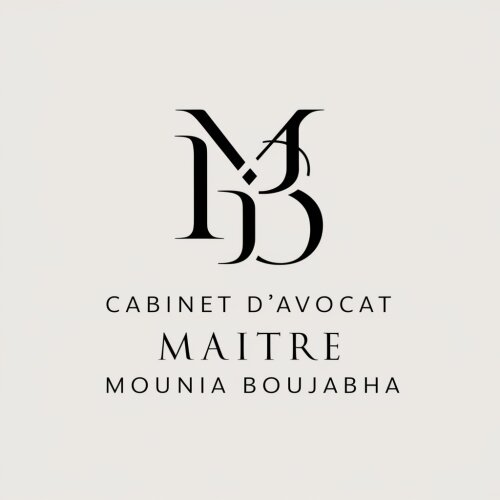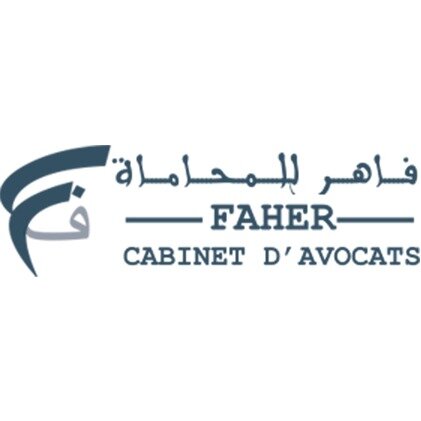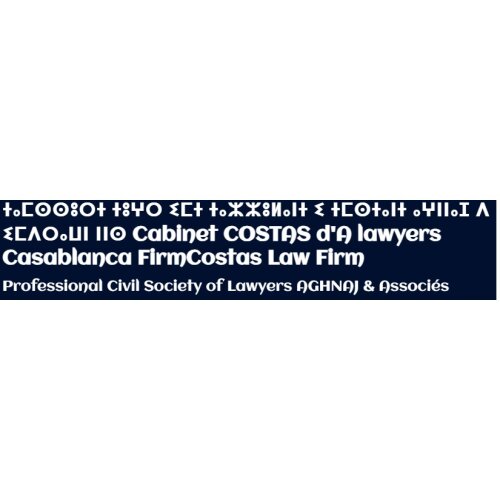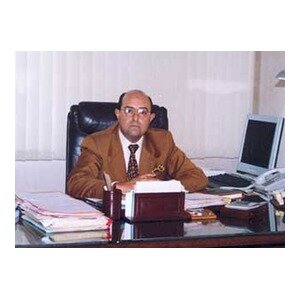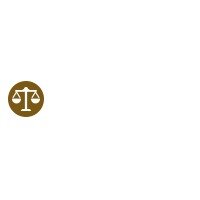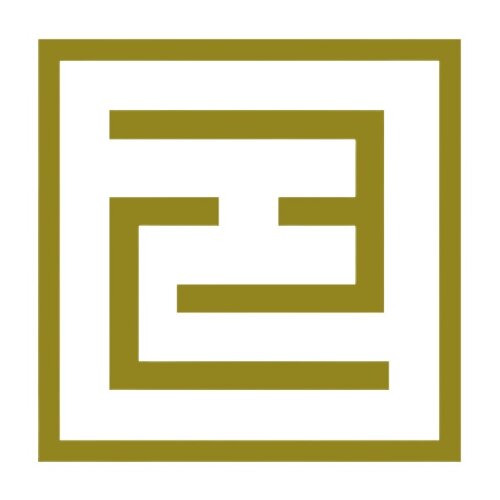Best Discrimination Lawyers in Morocco
Share your needs with us, get contacted by law firms.
Free. Takes 2 min.
Or refine your search by selecting a city:
List of the best lawyers in Morocco
About Discrimination Law in Morocco
Discrimination in Morocco is a critical issue that encompasses various aspects of daily life, including employment, education, housing, and access to public services. The country's laws aim to protect individuals against various forms of discrimination, including those based on race, gender, religion, ethnicity, and disability. While efforts have been made to align Morocco's legal framework with international human rights standards, challenges persist in ensuring effective implementation and enforcement.
Why You May Need a Lawyer
Individuals may seek legal assistance in discrimination cases for various reasons, including:
- Being denied employment opportunities or facing unjust treatment at work due to discriminatory practices.
- Experiencing discrimination in accessing education or public services.
- Facing housing discrimination based on ethnicity or nationality.
- Encountering barriers due to disability rights violations.
- Seeking redress for discrimination based on gender or sexual orientation.
Legal expertise can help navigate the complex landscape of discrimination law, gather evidence, and build a strong case for seeking justice and reparations.
Local Laws Overview
Morocco's legal framework includes several provisions aimed at combating discrimination. Key legislations include:
- The Moroccan Constitution: Provides for equality and prohibits discrimination based on race, gender, faith, or social status.
- Labor Code: Contains specific provisions against workplace discrimination and promotes equal treatment in employment.
- Family Code: Advances women's rights in marriage and family matters, addressing gender-based discrimination.
- Committed to International Standards: Morocco is a signatory to various international treaties, such as the Convention on the Elimination of All Forms of Discrimination Against Women (CEDAW).
Despite these laws, systemic and cultural challenges often impede their full application, necessitating legal intervention in many cases.
Frequently Asked Questions
What constitutes discrimination under Moroccan law?
Discrimination involves unfair or unequal treatment of an individual or group based on characteristics such as race, gender, ethnicity, religion, or disability.
Can I file a discrimination case if I believe I've been treated unfairly?
Yes, individuals have the right to file complaints and seek legal recourse if they experience discrimination. It is advisable to seek legal counsel to understand your rights and strengthen your case.
What evidence is needed to prove discrimination?
Evidence can include witness testimonies, written documents, electronic communications, and any other material that can demonstrate discriminatory practices.
How long does a discrimination case typically take?
The duration varies based on the complexity of the case, the availability of evidence, and court schedules. It's best to consult with a legal expert for case-specific timelines.
Are there advocacy groups in Morocco that focus on anti-discrimination efforts?
Yes, organizations like the National Human Rights Council (CNDH) work on promoting equality and addressing discrimination in Morocco.
What are the possible outcomes of a discrimination lawsuit?
Outcomes can include financial compensation, employment reinstatement, policy changes, or other remedial actions.
Can foreign residents face discrimination issues in Morocco?
Yes, foreign residents may encounter discrimination, particularly in employment and housing. Legal avenues are available to address these issues.
What are my rights in the workplace concerning discrimination?
Employees have the right to equal treatment in hiring, compensation, promotions, and working conditions, free from discrimination.
Does Morocco have specific laws protecting against disability discrimination?
Yes, there are laws designed to ensure accessibility and anti-discrimination for persons with disabilities, though enforcement remains a challenge.
What should I do if I experience discrimination?
Document the incident, gather evidence, and consult with a lawyer to explore legal options and potential remedies.
Additional Resources
For those seeking more information or assistance, consider reaching out to the following:
- National Human Rights Council (CNDH): Advocates for human rights and equality.
- Labor Inspectorate: Addresses workplace discrimination issues.
- Ministry of Solidarity, Social Development, Equality, and Family: Provides resources for discrimination against women and families.
- Local NGOs and advocacy groups focusing on minority rights and anti-discrimination efforts.
Next Steps
If you need legal assistance concerning discrimination in Morocco, consider taking the following steps:
- Consult with a lawyer specializing in discrimination law for an initial evaluation of your case.
- Gather any evidence and documentation related to the alleged discriminatory actions.
- Reach out to relevant authorities or advocacy groups for support and guidance.
- Explore legal options and decide on the best course of action with your legal advisor.
Taking informed legal action can help address injustices and contribute to broader efforts towards equality and non-discrimination in Morocco.
Lawzana helps you find the best lawyers and law firms in Morocco through a curated and pre-screened list of qualified legal professionals. Our platform offers rankings and detailed profiles of attorneys and law firms, allowing you to compare based on practice areas, including Discrimination, experience, and client feedback.
Each profile includes a description of the firm's areas of practice, client reviews, team members and partners, year of establishment, spoken languages, office locations, contact information, social media presence, and any published articles or resources. Most firms on our platform speak English and are experienced in both local and international legal matters.
Get a quote from top-rated law firms in Morocco — quickly, securely, and without unnecessary hassle.
Disclaimer:
The information provided on this page is for general informational purposes only and does not constitute legal advice. While we strive to ensure the accuracy and relevance of the content, legal information may change over time, and interpretations of the law can vary. You should always consult with a qualified legal professional for advice specific to your situation.
We disclaim all liability for actions taken or not taken based on the content of this page. If you believe any information is incorrect or outdated, please contact us, and we will review and update it where appropriate.
Browse discrimination law firms by city in Morocco
Refine your search by selecting a city.




